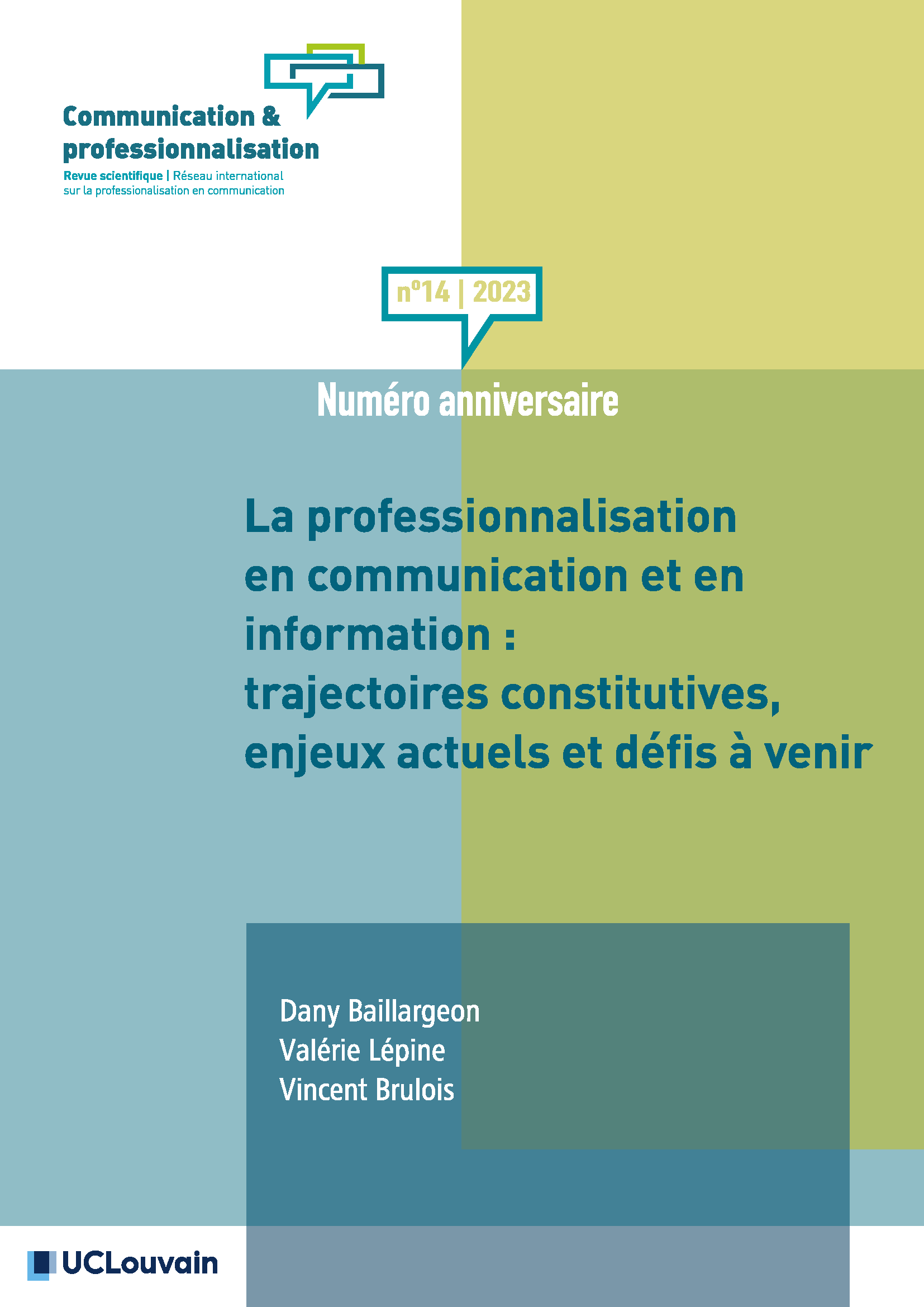The contribution of prudential practice to the institutionalisation of communication.
DOI:
https://doi.org/10.14428/rcompro.v14i14.81633Keywords:
Professionalisation, Institutionalisation, Organisational Communication, Credibility, LegitimacyAbstract
The article analyses the aspects of credibility and legitimacy of communication professionals in organisations using the framework of neo-institutional theories (DiMaggio et Powell, 1991; North, 2005; Scott, 2001). The objective of this paper is to investigate whether these aspects enable us to draw a parallel between the profession known as ’prudential practice’ (Champy, 2011), which deals with the management of complex, unique problems of uncertain nature that defy formalization (Champy, 2014), and the profession practiced by communication professionals within organisations. Forty-five Belgian communicators with at least 5 years of experience confided their professional experiences through the life story methodology (Bertaux, 1997). Through successive levels of data analysis, this article sheds light on the reality of the organisational context, the career paths of these professionals, and the narratives they construct. The study underscores the role of professionalisation, which empowers communicators to enhance their potential for effectiveness (Sharpe, 2000; Sinaga et Callison, 2008) by optimising their deliberative thinking. Their prudence emphasizes their strong commitment to the organisation (Champy, 2014; Maas et Domenget, 2018).
Downloads
Published
Issue
Section
License
Copyright (c) 2024 Anne-Marie Cotton

This work is licensed under a Creative Commons Attribution-NonCommercial-NoDerivatives 4.0 International License.
The authors publishing in Communication & Professionalization license their articles under the Creative Commons "Attribution-Noncommercial-No Derivative Works 4.0 International" (CC BY-NC-ND) license. This license allows anyone to duplicate and distribute the articles for non-commercial purposes, without modification, and as long as the author is appropriately credited.
There is no charge for managing or distributing the articles.
Authors retain ownership of their articles. However, the journal does not accept articles submitted to or published in other journals in English or French. It is the responsibility and ethics of authors to ensure that this agreement is respected.



